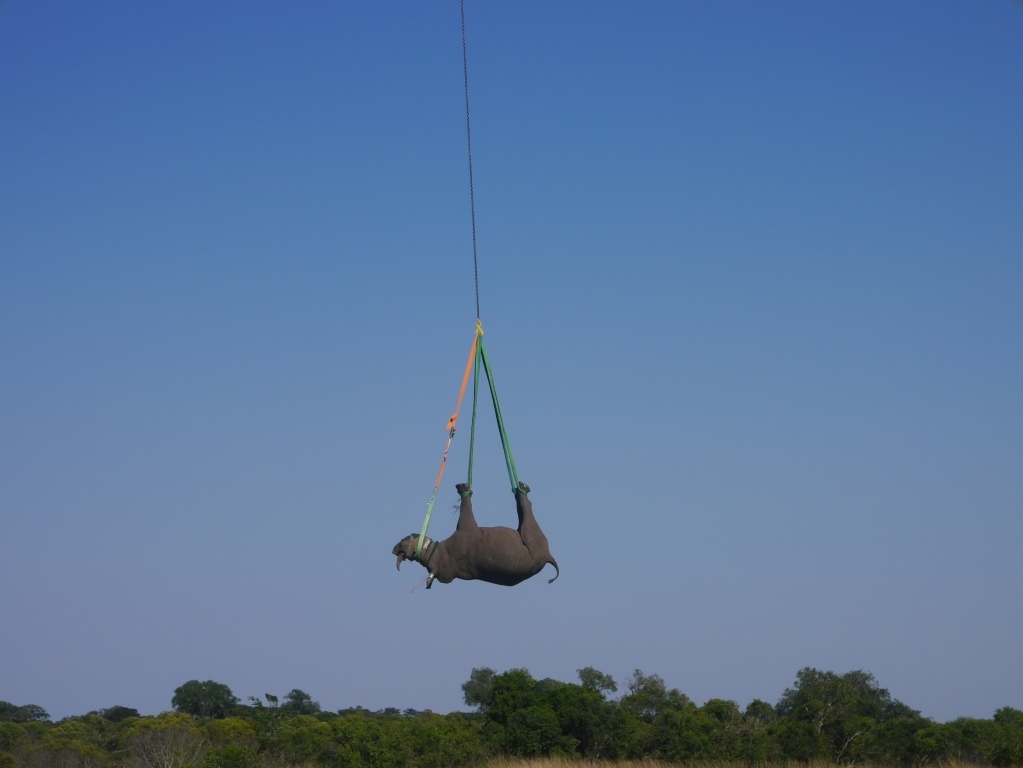The South African Government has announced plans to translocate up to 500 rhino from Kruger National Park to ‘safer locations’, as part of its ‘integrated strategic management of rhinoceros in South Africa’.
More than 658 rhinos have been illegally killed in South Africa so far this year, putting 2014 on course to be the worst poaching year on record. Kruger has experienced the worst of the poaching crisis with 408 losses, despite rigorous efforts to protect the species.
SANParks conducts periodic population surveys and the latest census from 2013 shows Kruger National Park has between 8,400 and 9,600 white rhinos. Despite the intensive poaching, the population is currently stable with an annual mortality rate, including poaching, of around 8% which is matched by an 8% birth rate. However any further increase in poaching will push the population into decline.
During a press conference, South Africa’s Environmental Affairs Minister Edna Molewa was quoted saying that the relocation will be a “mammoth task”. The operation will involve tracking the animals in rugged and remote bush, darting them with tranquillisers from helicopters and then moving them. Moving each animal could cost up to $2,000 (£1,200).
The focus of the operation will be on Kruger’s eastern border with Mozambique, one of the world’s poorest countries, where the majority of poachers are able to slip over the border. Rhinos will also be moved from areas where environmental conditions and high rhino densities restrict breeding and increase mortalities.
According to news reports, the rhinos will be relocated to other state-owned provincial parks, private parks and communal areas. There has been much speculation in the press that the rhinos will be sold to private hunting reserves; however when asked about the latest successful bidders Molewa responded that ‘Names cannot be published due to exposure and security risks.’
During parliamentary questioning, Molewa responded to enquiries relating to the sale of rhinos from Kruger National Park. She said that 354 rhinos have been sold from Kruger National Park since 1 January 2010 for a total of R81 million (£4.6 million). This equates to around R230,000 (£13,000) per rhino.
It seems that this is a relatively low price for rhinos, however Dr Richard Emslie, Scientific Officer of the IUCN SSC African Rhino Specialist Group explains possible reasons for this, including:
- Due to poaching crisis, an increasing number of private owners are seeking to get out of owning rhinos, due to the increase in security costs, risks to investment and risks to family and staff. When it comes to rhinos it is probably more of a buyers’ market
- One can expect prices to be a little lower during large sales and higher when fewer are being sold
- There has been a significant cost: benefit shift for the private rhino owners. They may be moving to other less risky animals such as buffalo, which are reaching much higher prices at auction
When asked how the funds would be spent, Molewa responded
SANParks accumulates all income from the sale of animals in a special fund called the Park Development Fund. This Fund is used by SANParks for numerous conservation-related projects including: acquisition of land for inclusion into national parks, research projects in the biophysical and social sciences relevant to national parks, scientific reports and community beneficiation projects.
Sources
South African Department of Environmental Affairs press release 12 August 2014
IOL online – SAN Parks sells 354 rhinos for R81 million
Politics web, South Africa – SAN Parks have sold 354 rhinos since 2010









